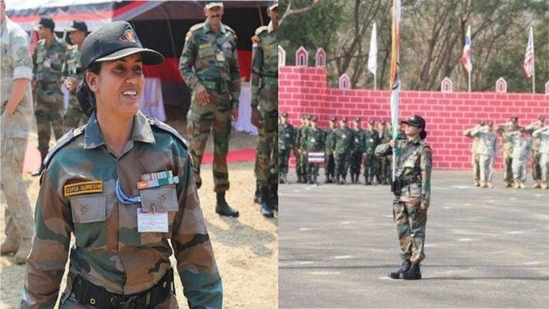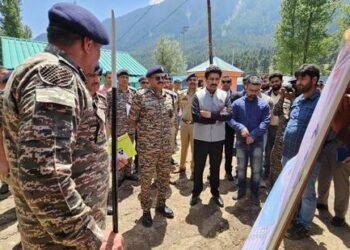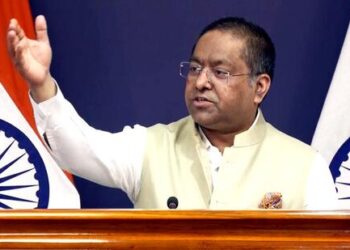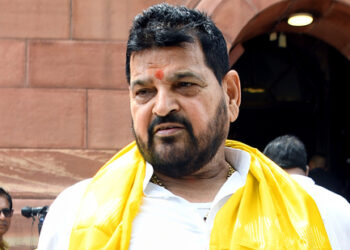In a powerful display of leadership and military professionalism, Colonel Sophia Qureshi of the Indian Army and Wing Commander Vyomika Singh of the Indian Air Force took charge of the media briefing on Operation Sindoor, India’s retaliatory military operation following the April 22 terror attack in Pahalgam, Jammu and Kashmir, which claimed the lives of 26 civilians.
The press conference, also attended by Foreign Secretary Vikram Misri, was not only significant for its strategic implications but also marked a historic moment for women in India’s defence forces. With both senior officers leading the media engagement, the spotlight was on their professionalism, clarity, and command—an image of India’s increasingly gender-inclusive military leadership.
Among the two, Colonel Sophia Qureshi drew particular attention. A trailblazer in her own right, she hails from the Corps of Signals and has a distinguished career behind her. In 2016, she became the first woman officer to lead an Indian Army contingent in a multinational military exercise, commanding respect from 17 other participating nations. She is also a United Nations peacekeeping veteran, having served in the Congo mission in 2006, where she helped monitor ceasefires and supported humanitarian efforts.
Originally from Gujarat, Colonel Qureshi has a postgraduate degree in biochemistry and was commissioned in 1999from the Officers Training Academy, Chennai. Coming from a family with deep military roots—her grandfather served in the Army—she continues the tradition with distinction. Her spouse is an officer in the Mechanised Infantry.
Wing Commander Vyomika Singh, though less publicly profiled, also stood out for her commanding presence at the briefing. Her inclusion reflects a broader trend of recognising and utilising the operational and strategic capabilities of women officers in the Indian Air Force.
The press conference came in the wake of India’s precision strikes across the Line of Control, part of Operation Sindoor, targeting terror infrastructure linked to those responsible for the Pahalgam massacre. The visible role of women officers at such a crucial moment further cements their growing influence in military decision-making and public communication.
Colonel Qureshi’s leadership is also symbolic in a broader sense. As she had told The Indian Express in a past interview, peacekeeping missions—and by extension, military operations—are not just about armed conflict but about ensuring peace, stability, and safeguarding civilian lives. Her role in the current military response carries that spirit forward.
As the international community closely watches developments between India and Pakistan, the optics and substance of the press briefing underscored India’s resolve, clarity, and evolving military ethos. With officers like Colonel Qureshi and Wing Commander Singh leading from the front, the message was loud and clear—India is not only prepared but unified, with women at the helm of its defence narrative.








 India
India












